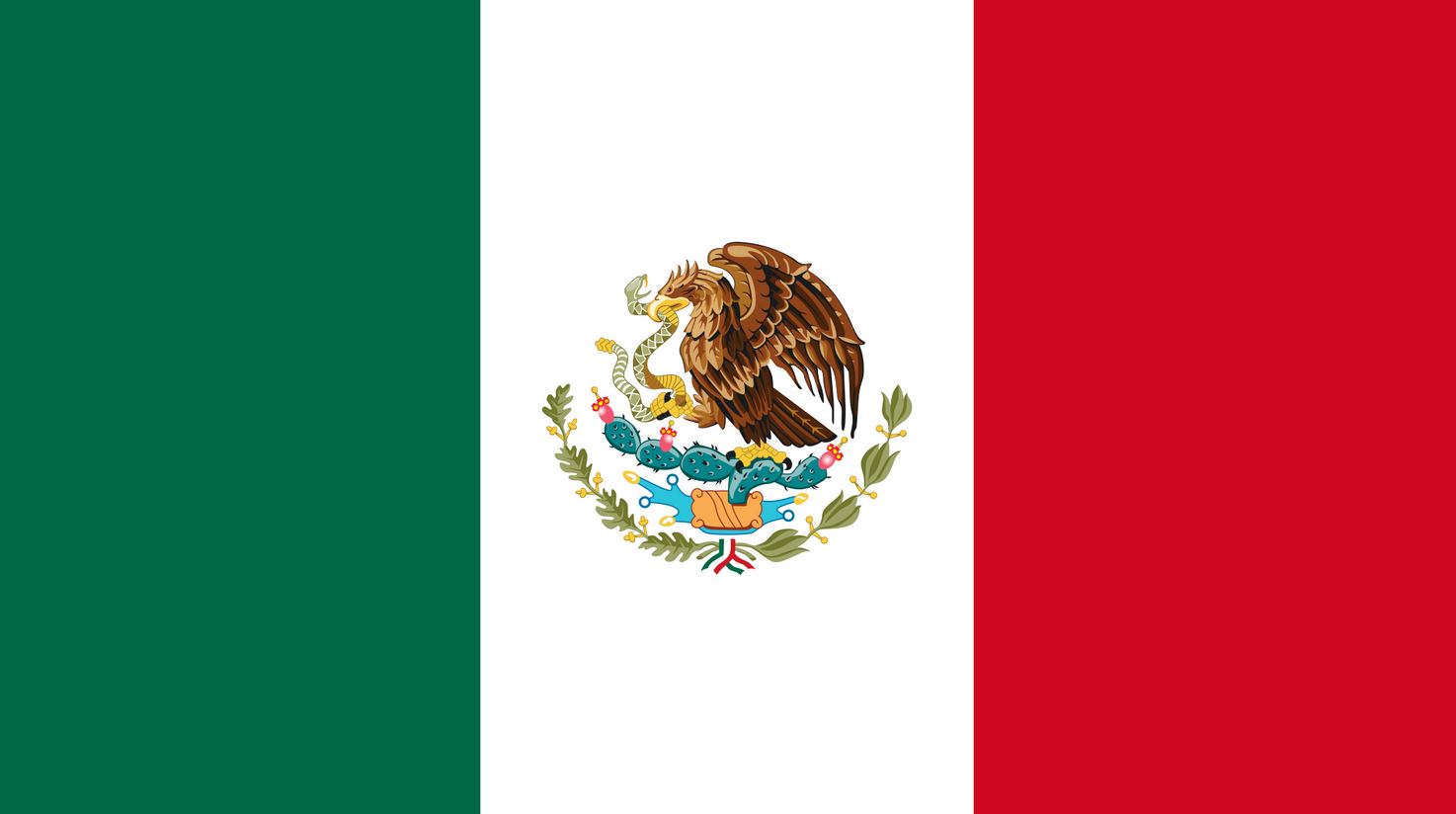WORLD NEWS FLASH

MEXICO
If you are thinking that the premise of a woman named “Claudia Sheinbaum” being elected as the President of Mexico was a “Saturday Night Live” sketch, think again.
On June 2, Sheinbaum was elected with 58 percent of the vote to become the historic victor as the new President-Elect. If she did not win, then history still would have made, as her opponent Xochitl Galvez is also a woman.
Born Claudia Sheinbaum Pardo, the President-Elect previously served as a member of outgoing President Andrés Manuel López Obrador’s cabinet as Secretary of the Environment. In addition to having a Ph.D. in Energy Engineering from National Autonomous University of Mexico, she was among several people awarded the Nobel Peace Prize in 2017 for work related to climate science. She also served as Mayor of Tlalpan from 2015 to 2018, when she resigned to run for Head of Government of Mexico City, which is the highest position of power in the city, similar to being the mayor. She resigned from this position in 2023 to run for President of Mexico.
“I congratulate Claudia Sheinbaum on her historic election as the first woman President of Mexico,” said U.S. President Joseph Biden in a statement. “I look forward to working closely with President-elect Sheinbaum in the spirit of partnership and friendship that reflects the enduring bonds between our two countries. I express our commitment to advancing the values and interests of both our nations to the benefit of our peoples. I also congratulate the Mexican people for conducting a nationwide successful democratic electoral process involving races for more than 20,000 positions at the local, state, and federal levels.”
While the news of a woman being elected as the President of a nation brought jubilation to some, it was bittersweet to others, as this election season has seen over three dozen candidates vying for political position all throughout the country be assassinated.
Sheinbaum is slated to begin her historic six-year presidential term on Oct. 1.
UNITED STATES
ANOTHER HUMAN BIRD FLU CASE
A second human case of highly pathogenic avian influenza (HPAI) A(H5) virus infection has been identified in the state of Michigan. This is the third human case associated with an ongoing multistate outbreak of A(H5N1) in U.S. dairy cows. None of the three cases are associated with the others.
As with the previous two cases (one in Texas, one in Michigan), the person is a dairy farm worker with exposure to infected cows, making this another instance of probable cow-to-person spread. This is the first human case of H5 in the United States to report more typical symptoms of acute respiratory illness associated with influenza virus infection, including A(H5N1) viruses. CDC continues to closely monitor available data from influenza surveillance systems, particularly in affected states, and there has been no sign of unusual influenza activity in people, including no increase in emergency room visits for influenza and no increase in laboratory detection of human influenza cases.
Based on the information available at this time, this case does not change CDC’s current A(H5N1) bird flu human health risk assessment for the U.S. general public because all three sporadic cases had direct contact with infected cows. Risk depends on exposure, and in this case, the relevant exposure is to infected animals.
The risk to members of the general public who do not have exposure to infected animals remains low. However, this development underscores the importance of recommended precautions in people with exposure to infected or potentially infected animals. People with close or prolonged, unprotected exposures to infected birds or other animals (including livestock), or to environments contaminated by infected birds or other infected animals, are at greater risk of infection and should take precautions.
A dairy worker with exposure to H5N1-infected cows (at a different farm from the case last week) reported symptoms to local health officials. The patient reported upper respiratory tract symptoms including cough without fever, and eye discomfort with watery discharge. The patient was given antiviral treatment with oseltamivir, is isolating at home, and their symptoms are resolving. Household contacts of the patient have not developed symptoms, are being monitored for illness, and have been offered oseltamivir. No other workers at the same farm have reported symptoms, and all staff are being monitored. There is no indication of person-to-person spread of A(H5N1) viruses at this time.
Specimens were collected from the patient; one of which was positive for influenza A(H5) virus using the CDC test at the state health department laboratory. The specimens were forwarded to CDC for further testing. They were received on May 29, and testing results that night confirmed A(H5) virus infection. Michigan was then notified of the results.
The designation of the influenza virus neuraminidase (the N in the subtype) is pending genetic sequencing at CDC and results will be made available within 1-2 days, if successful. Additional genetic analysis will look for any changes to the virus that could change the agency’s risk assessment.
MASS SHOOTING UPDATE
Information recent as of 6-4-2024 at 12 p.m.
2024 Mass Shooting Stats: (Source: Mass Shooting Tracker – https://www.massshootingtracker.site/data/?year=2024)
- Total Mass Shootings: 234
- Total Dead: 309
- Total Wounded: 919
- Shootings Per Day: 1.50
- Days Reached in Year 2024 as of June 4: 156
HAITI
AID ARRIVES FOR THE FIRST TIME IN MONTHS
On May 30, a humanitarian flight operated by the UN Humanitarian Air Service (UNHAS) flew from Panama to Haiti – specifically the Port-au-Prince airport – for the first time in three months, according to Stéphane Dujarric, Spokesperson for the Secretary-General.
The international airport had been closed due to rampant gang violence in the country.
The flight carried nearly 15 metric tons of medicine and medical supplies to be added to the resources of the UN Children’s Fund (UNICEF) and the World Health Organization (WHO).
Mr. Dujarric said this will “support critical, lifesaving operations as insecurity continues to restrict people’s access to healthcare, mainly in the metropolitan area of the capital Port-au-Prince and in the Artibonite department.”
The Secretary-General’s spokesperson said that local non-governmental organizations along with WHO are providing many services to displaced civilians, including “screening for malnutrition, cholera prevention and as well as psychosocial support.”
Mr. Dujarric said he hopes that the gradual opening of the airport in Haiti will allow more supplies to be transported; he said that donor support is needed.
A humanitarian response plan for the country requires $674 million but only 21 percent of the funds – $142 million – has been received, he added.
Meanwhile, UNICEF is warning about child recruitment by armed groups in Haiti, the Secretary-General’s spokesperson said.
Reportedly, 30 to 50 percent of members of armed groups are children, subjecting them to “coercion, abuse and exploitation stemming from persistent social, economic and political fragility caused by the ongoing violence that has spiraled parts of the country into chaos.”
The Haitian Ministries of Justice, Education and Labor and Social Affairs are working to facilitate the reintegration of young people who had previously belonged to armed groups in hopes this will safeguard their well-being.
Mr. Dujarric said that UN Secretary-General António Guterres has called for the prompt deployment of the Multinational Security Support (MSS) mission to Haiti to assist local police in addressing security situations.
UNITED KINGDOM
FEARS OF MIGRANT EXPLOITATION
Independent UN human rights experts have expressed concern about the protection risks faced by migrant workers in the United Kingdom (UK), including “deception, exorbitant recruitment fees, debt bondage, undignified living conditions, and potential deportation.”
The experts said they have received allegations that migrants are being deceived about “working and living conditions and the nature of their agreements with employers in the agricultural or care sectors.”
“This is unlawful and highlights the need for urgent reform of the current system governing labor migration, to ensure effective protection of the rights of migrant workers,” they said.
The UN experts are concerned about shortcomings of the Seasonal Worker Scheme – a system implemented in response to labor shortages in the UK.
These specialists say some “scheme operators” which are licensed recruitment companies will recruit migrants to work on farms or in poultry production and some will illegally charge them upwards of £3,000 to become employed, leaving the migrants in bondage.
In other cases, migrants are promised work in the agricultural or care sector before arriving in the country, but later learn there is no job for them.
The UK Government has revoked the licenses of “non-compliant” employers in the care sector, however, experts say there is no protection for employees who lose their jobs due to these revocations.
They said many employees may later face deportation while others may become victims of trafficking and exploitation.
“Currently, too many temporary migrant workers have been in a legal limbo for too long and risk becoming destitute.”
The special rapporteurs said the UK government needs to “hold scheme operators accountable through effective supervision and audits, as well as regular labor inspections on farms, protecting against human rights abuse by business enterprises domiciled in its territory, in line with the Guiding Principles on Business and Human Rights.”
They also said people exploiting laborers should be prosecuted, while justice should be guaranteed for victims.


